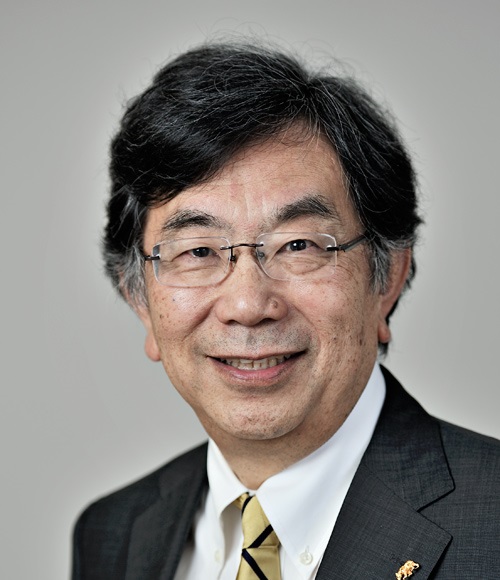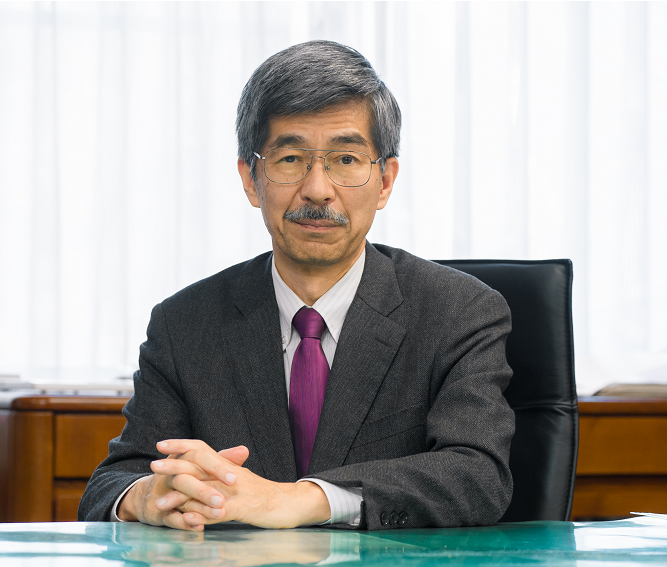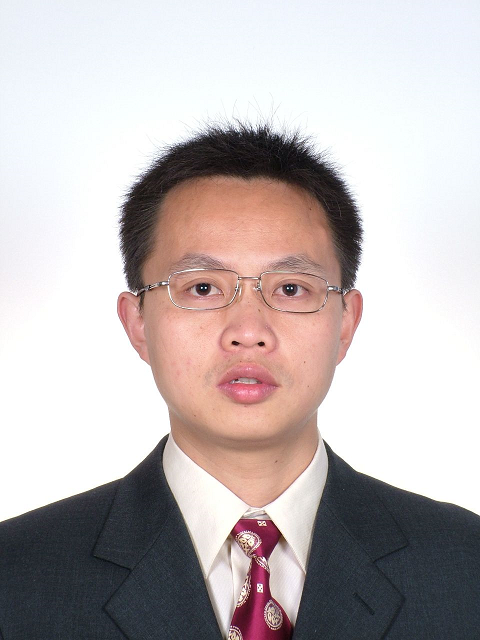
Faculty of the Department of Mechanical Engineering,
The University of California at Berkeley, United States of America

Masayoshi Tomizuka received his Ph. D. degree in Mechanical Engineering from the Massachusetts Institute of Technology in February 1974. In 1974, he joined the faculty of the Department of Mechanical Engineering at the University of California at Berkeley, where he currently holds the Cheryl and John Neerhout, Jr., Distinguished Professorship Chair. His current research interests are optimal and adaptive control, digital control, signal processing, motion control, and control problems related to robotics, precision motion control and vehicles. He served as Program Director of the Dynamic Systems and Control Program of the Civil and Mechanical Systems Division of NSF (2002- 2004). He served as Technical Editor of the ASME Journal of Dynamic Systems, Measurement and Control, J-DSMC (1988-93), and Editor-in-Chief of the IEEE/ASME Transactions on Mechatronics (1997-99). Prof. Tomizuka is a Life Fellow of the ASME and IEEE and a Fellow of IFAC (International Federation of Automatic Control). He is the recipient of the Charles Russ Richards Memorial Award (ASME, 1997), the Rufus Oldenburger Medal (ASME, 2002), the John R. Ragazzini Award (American Automatic Control Council, AACC, 2006), Lifetime Achievement Award (Technical Committee on Mechatrnic Systems, IFAC 2013) and the Richard Bellman Control Heritage Award (AACC, 2018).
SERoCS: Safe and Efficient Robot Collaborative Systems for Next Generation Intelligent Industrial Co-Robots
Human-robot collaborations have been recognized as an essential component for future factories. It remains challenging to properly design the behavior of those co-robots. Those robots operate in dynamic uncertain environment with limited computation capacity. The design objective is to maximize their task efficiency while guaranteeing safety. This talk presents a set of design principles of a safe and efficient robot collaboration system (SERoCS) for the next generation co-robots, which consists of robust cognition algorithms for environment monitoring, efficient task planning algorithms for reference generations, and safe motion planning and control algorithms for safe human-robot interactions. The proposed SERoCS will address the design challenges and significantly expand the skill sets of the co-robots to allow them to work safely and efficiently with their human counterparts. The development of SERoCS will create a significant advancement toward adoption of co-robots in various industries. The experiments validate the effectiveness of SERoCS.

Jan Swevers received the M.Sc. degree in electrical engineering and the Ph.D. degree in mechanical engineering from the KU Leuven, Belgium, in 1986 and 1992, respectively. He is full professor in the Department of Mechanical Engineering of KU Leuven, and coordinates the MECO research team (Motion Estimation, Control and Optimization). His research focuses on motion control and optimization of mechatronic systems: optimal control of linear multivariate systems, iterative learning control, system identification, optimal motion planning and embedded optimization for motion control systems. He is a member of the DMMS lab, Flanders Make, Leuven, Belgium.
LCToolbox: Facilitating Optimal Linear Feedback Controller Design
Optimal linear feedback controller synthesis methodologies have the potential to become a worthy alternative to standard design methodologies, especially for high-end complex systems. Although these design methodologies have been around for more than two decades, the majority of industrial control engineers is still reluctant to adopt this new design paradigm.
Motivated by these observations, the MECO Research Team of KU Leuven is developing the Linear Control Toolbox (LCToolbox). LCToolbox is an open-source Matlab toolbox providing a high level of abstraction to apply these optimal controller design methods. Its key features are the signal-based modeling framework that allows the user to construct the control configuration, the identification module that interfaces several routines in a uniform manner and the control module that allows the user to specify an optimal feedback controller design problem in an intuitive way and solve it as such. Moreover, LCToolbox supports state-of-the-art B-spline-based LPV modeling and controller design techniques, unlocking the true potential of advanced feedback controller synthesis methodologies. The design of an LPV controller for a 3D overhead crane is used as a running example throughout the presentation to illustrate all features of LCToolbox.

Atsuo Kawamura received the Ph.D. degree in electrical engineering from the University of Tokyo in 1981. After the five-year-stay at the University of Missouri-Columbia as a faculty member, he joined Yokohama National University in 1986, and in 1996 he became a professor. From 2013 to 2015 he was a dean of College of Engineering Science and also a dean of Graduate School of Engineering there. His interests are in the fields of power electronics, digital control, electric vehicles, and biped robotics. He received Transactions Paper Awards from IEEE in 1988, 2001 and 2002, and from IEE of Japan in 1996. He also received EPE-PEMC award in 2008. Dr. Kawamura is an IEEE Life Fellow, and a Fellow of the IEE of Japan. He served as a president of IEEJ/IAS from May 2012 to May 2013.
Challenge to 99.9 % Electric Power Conversion Efficiency
Extremely high electric power conversion efficiency over 99 % has been challenged by the authors group and several evidences were summarized in this invited talk. First in the field of the dc-dc electric power conversion, resonant switching technique was introduced and 99 % efficiency was achieved in the very high power density. Second a new concept of a partial power converter for dc-dc converter was introduced and over 99.5% efficiency was verified in the power range between 10 and 100 kW. Third this concept was extended to the partial power conversion principle and it is applied to dc-ac electric energy conversion i.e. inverter. Discarding the power density target, 99.65% efficiency around 2.5 kW power range was experimentally measured as tentative data. Finally applications of these power conversion techniques will be added if time is available.

Shihua Li was born in Pingxiang, Jiangxi Province, China in 1975. He received his bachelor, master, Ph.D. degrees all in Automatic Control from Southeast University, Nanjing, China in 1995, 1998 and 2001, respectively. Since 2001, he has been with School of Automation, Southeast University, where he is currently a professor, Vice Dean of the School of Automation (2016.1~). He is also the Secretary General of Jiangsu Association of Automation. His main research interests include modeling and nonlinear control theory (nonsmooth control, sliding mode control, disturbance rejection control, adaptive control, etc) with applications to mechatronic systems, including motion control, automobile engine control, manipulator, robot, power electronic systems, etc.
He serves as guest editors of IEEE Transactions on Industrial Electronics, International Journal of Robust and Nonlinear Control, IET Control Theory & Applications, SCIENCE CHINA Information Sciences and associate editors of International Journal of Robust and Nonlinear Control, IET Control Theory & Applications, Advanced Control for Applications: Engineering and Industrial Systems, International Journal of Control, Automation, and Systems and International Journal of Electronics. He is a Senior Member of IEEE CSS, IES and PELS, the vice chairman of IEEE CSS Nanjing Chapter, a member of Technical Committee on Nonlinear Systems and Control,Technical Committee on System Identification and Adaptive Control,Technical Committee on Variable Structure Systems and Sliding Mode Control of the IEEE CSS and a member of Electrical Machines Technical Committee, Motion Control Technical Committee of the IEEE IES.He is a member of the Technical Committee on Control Theory of Chinese Association of Automation. He visited UC Berkeley from 2006.9-2007.9, RMIT University 2011.3-2011.6,University of Minnesota at Twin Cities 2012.4-2012.10, University of Hong Kong 2014.6-2014.8 and University of Western Sydney 2017.7-2017.8.
He has published over 200 research papers, among them over 100 international journal papers. He is one of Clarivate Analytics (originally Thomson Reuters) Highly Cited Researchers (Engineering) all over the world in 2017, one of the Most Cited Chinese Researchers from Elsevier (Control and system engineering), 2015, 2016 and 2017. He is a winner of best paper in the IET Control Theory & Applications 2017 and a winner of annual ICI prize for best paper in the Transactions of the Institute of Measurement 2016.
Modeling, Analysis and Advanced Control with Applications for Mechatronic Systems
For mechatronic systems, nonlinearities (frictions, backlash, saturation, etc.), complex internal dynamics, time-varying parameters, external disturbances and complex work tasks make control design a very challenging work. In this talk we will discuss on various advanced modeling, analysis and control techniques for mechatronic control systems. Compared with high gain control and integral control methods, disturbance estimation based control provides a different way to handle disturbance. Disturbance estimation based robust control method can effectively improve the disturbance rejection ability and ensure the robustness of closed-loop system. Some new research developments and results on this topic will be introduced. Considering the characteristics of mechatronic control system, several kinds of composite control design schemes based on disturbance estimation and compensation are presented with experimental verification results.